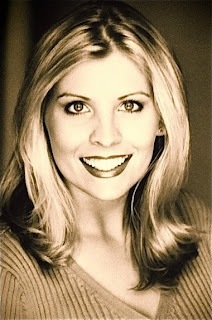Many of you know that I am revising my latest book, ANIMALIA. And during this process, I have been asked many times, "Why don't you self-publish?" Well, I'm going to answer that question and hopefully a few more.
So why don't I self-publish? The answer is first, I want to see if I can do it the traditional way. I want to see if my ideas and writing are good enough to snag the interest of an agent and then a publisher and an editor.
And honestly, self-publishing scares me. There's so much you have to know and learn, and to do that, I know I would stop writing for a time in order to learn it all. I'd have to promote myself. Where? How? I'd have to learn that too.
When it comes down to it, I am a writer, not an editor, not a publisher, not a promoter, not a distributor. I just want to write.
But maybe the most compelling reason I am going the traditional route is an email I received from my mentor. I will list the important parts below.
Here's what he said:
So why don't I self-publish? The answer is first, I want to see if I can do it the traditional way. I want to see if my ideas and writing are good enough to snag the interest of an agent and then a publisher and an editor.
And honestly, self-publishing scares me. There's so much you have to know and learn, and to do that, I know I would stop writing for a time in order to learn it all. I'd have to promote myself. Where? How? I'd have to learn that too.
When it comes down to it, I am a writer, not an editor, not a publisher, not a promoter, not a distributor. I just want to write.
But maybe the most compelling reason I am going the traditional route is an email I received from my mentor. I will list the important parts below.
Here's what he said:
- An agent will find you the right publisher, and, when dealing with that publisher, will not only try to get you a bigger advance--but will try to nail down a two or three-book deal, giving you momentum, cash, and confidence.
- An agent will know how to work the contract--given the publisher--finessing the sub right: movie, audio, e-book, etc. Agents actually do earn their money. It's to their benefit, of course, to make the best deal for you.
- A publisher wants every book to succeed, and they'll pair you with an editor who will push you to develop the novel even more than you can imagine and produce the best version of it--work on the novel hardly stops when the deal is signed.
- A publisher shepherds the book all the way through to a finished version, from developmental drafts to ms. copy, copy-editing, etc. It's painstaking and hard work.
- It's important that your book appears on a kids' list. Your book needs to get to the right people--the reps who know how to sell kid's books and to whom, the reviewers who can best help the book, and those contests and awards that can really help a book take off.
- Perhaps most importantly of all for kids' books, they'll help you get to the librarians. Libraries are a huge part of the kids' world, not only the sheer number of books kids librarians buy but getting those books into the hands of readers who will then use word of mouth, etc. It's a vital link for kids' books.
- Now, to the money. Yes, under an alternative deal, you might, as the author, get more $ per book sold than with a traditional publisher. But you will, I assure you, sell far fewer books. Agents and publishers do so much more than most people think. And what they do makes a huge difference.
So there you have it from my mentor to you as to why I will be traditionally publishing. Choose wisely, my fellow writers. And know what you are getting yourself into whichever route you decide.
Good luck!
Write~on,
Angie



























































